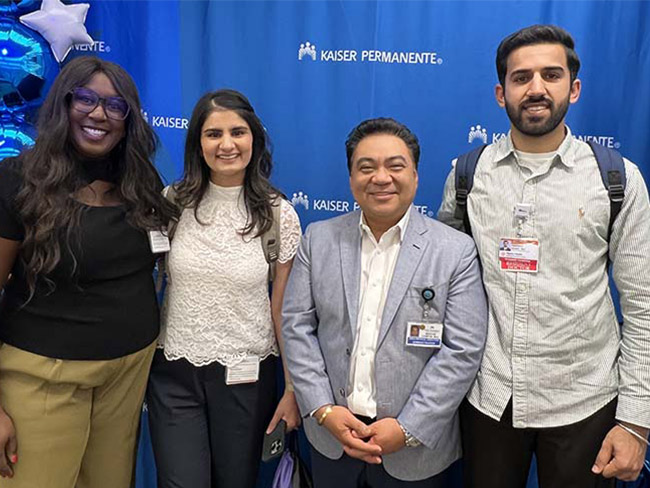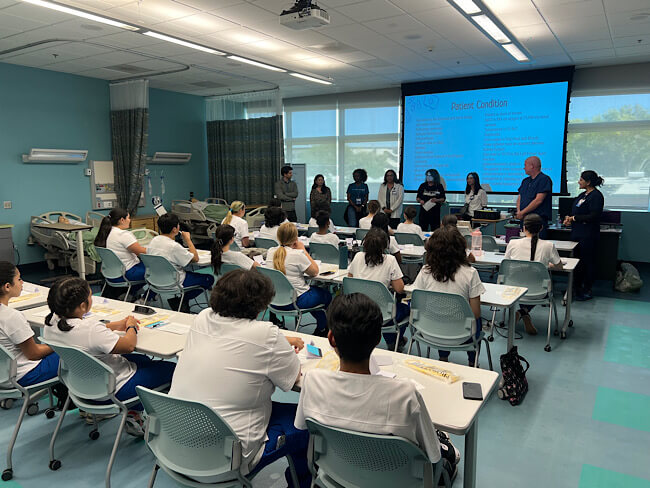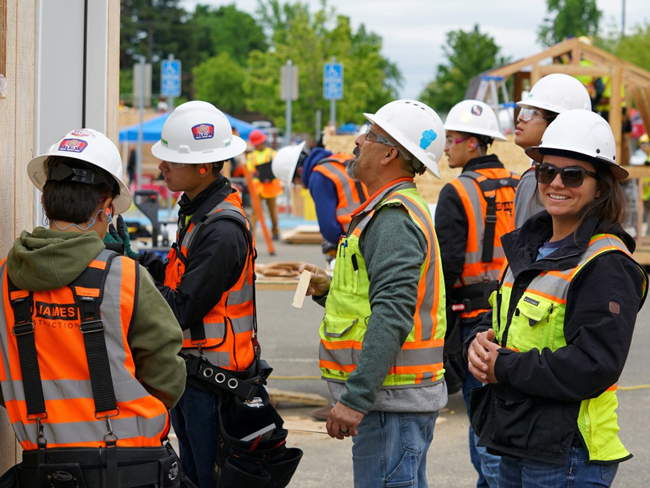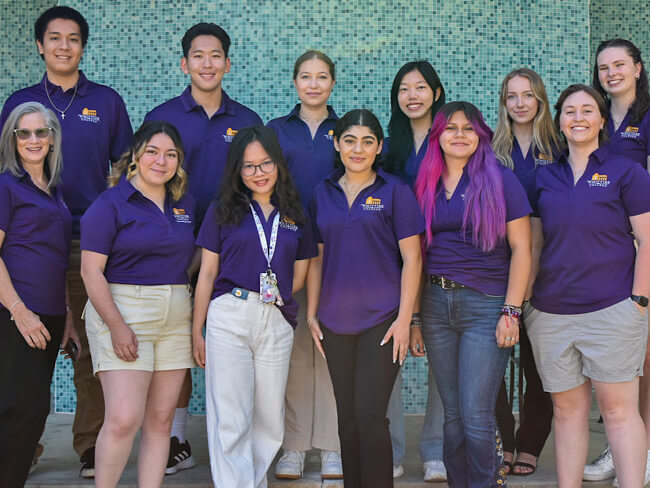Growing the Northwest’s mental health care workforce
Our Mental Health Workforce Accelerator program tackles the urgent need to expand and diversify Oregon and Southwest Washington’s mental health care workforce.
Karen Torres recently earned her master’s degree with a focus in mental health care and is working toward her therapist license.
Karen Torres is navigating the hurdles of becoming a licensed mental health therapist with support from Kaiser Permanente. She is the first participant in Kaiser Permanente’s Mental Health Workforce Accelerator program in the Northwest. The Northwest’s program is backed by $1.66 million in grants and aims to grow and diversify the mental health care workforce.
A critical need
“We know that addressing mental health and behavioral health is a critical need in our community, as evidenced by our 2 most recent Community Health Needs Assessments, conducted in 2019 and 2022,” said Stephanie Lizza, Kaiser Permanente’s senior director for community health in the Northwest.
“Kaiser Permanente is proud to support future mental health professionals like Karen through our Mental Health Workforce Accelerator — removing financial barriers and expanding access to mental and behavioral health care in our communities.”
1 in 3
people live in areas with a shortage of mental health professionals
Nationally, more than 1 in 3 people live in areas with a shortage of mental health professionals. In Oregon, there are 1.15 full-time mental health providers per 1,000 people. But in rural areas, the number of providers drops to just 0.5, according to Oregon's Office of Rural Health. Communities of color and people in lower-income areas are disproportionately affected.
“We are facing an increase in depression, anxiety, addiction, and suicide across our communities,” said Pavan Somusetty, MD, chief of service for mental health for Kaiser Permanente in the Northwest. “At the same time, there are not enough qualified, diverse professionals to meet the growing need.”
Bridging gaps for aspiring mental health workers
To address these shortages, Kaiser Permanente has partnered with the National Council for Mental Wellbeing and the Oregon Council for Behavioral Health to launch the Mental Health Workforce Accelerator program. The initiative focuses on bridging the gap between academic degrees and licensure for aspiring mental health professionals.
For many graduates, obtaining the required supervised clinical hours — up to 1,900 in Oregon — is a major challenge. Licensing exams and test preparation materials can also be prohibitively expensive.
Torres, who is bilingual and specializing in pediatric mental health therapy, says she is grateful for the program.
“One of the great things about the program is that it follows us — the new graduates,” she said. “The program team works with agencies, but it’s not housed within one. They help us with every issue we face, breaking down barriers and supporting us to succeed in the field.”
I wouldn’t be here doing this work without the support of programs like this. Karen Torres, Mental Health Workforce Accelerator program participant
Inclusive care for Northwest communities
The Mental Health Workforce Accelerator provides job placement support, financial incentives for licensing, and supervision for post-master’s mental health associates working in community-based settings that serve diverse populations. Kaiser Permanente’s grants also fund program oversight, operations, and evaluation in collaboration with the National Council for Mental Wellbeing and the Oregon Council for Behavioral Health.
Kaiser Permanente launched the program in Colorado and Georgia in 2023. It has since expanded to California, Washington, and the Northwest.
The Northwest’s program will eventually support 34 post-master’s candidates through licensure and job placement in the Northwest.
For Torres, the program came at the perfect time. She graduated in October 2024 with a master’s degree in clinical mental health counseling and is now working at a pediatric community-based agency in the Portland area.
Torres has a passion for working with youth and young clients, specializing in play therapy and trauma-informed care.
“For many of my clients, having to navigate academics, life, and mental health at the same time is a challenge. I can relate to that,” she said. “That’s why it’s so important to me to be part of a community-focused program, working with diverse communities.”
Torres says she is grateful that organizations like Kaiser Permanente are committed to supporting the community.
“Coming from an adverse background, I received support through community groups and scholarships,” she said. “I feel extremely lucky and want to give back. I wouldn’t be here doing this work without the support of programs like this.”
Learn more about Kaiser Permanente’s efforts to strengthen the mental health workforce.











